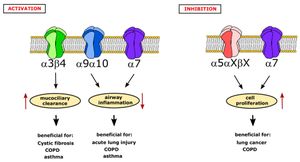A phase II trial has demonstrated promising results for the combination of the anti-PD-L1/CTLA-4 bispecific antibody KN046 with lenvatinib, offering hope for improved outcomes among patients with advanced unresectable or metastatic hepatocellular carcinoma (HCC).
The study, conducted as part of the clinical trial NCT04542837, involved 55 participants who received KN046 at 5 mg/kg every three weeks alongside lenvatinib, which was administered daily at dosages of either 12 mg or 8 mg depending on body weight. The primary focus of the trial was to assess the efficacy and safety of this combination therapy.
Results from the trial show significant findings, with the objective response rate (ORR) hitting 45.5%, indicating nearly half of the patients experienced some degree of tumor response. Importantly, the median progression-free survival was recorded at 11.0 months, and the median overall survival reached 16.4 months, with 60% of patients remaining alive 12 months post-treatment.
Angela Tzeng, who headed the clinical team, stated, "First-line KN046 plus lenvatinib shows promising efficacy for advanced unresectable or metastatic HCC," emphasizing its potential to change the treatment paradigm for this hard-to-treat disease. The absence of dose-limiting toxicities (DLT) during the safety run-in period is another highlight, reflecting the tolerability of this combination.
Patients were predominantly male, with 80% diagnosed with hepatitis B and the majority classified under the Barcelona Clinic Liver Cancer (BCLC) stage C. The study also analyzed the predictive value of circulating tumor DNA (ctDNA) as a biomarker for prognosis, indicating its status before the third treatment was associated with outcomes. This aligns with previous research showing ctDNA's potential role as a prognostic indicator.
While the treatment demonstrated encouraging results, adverse effects were reported, with 47.3% of participants experiencing grade 3 or higher treatment-related adverse events (TRAEs). Common TRAEs included decreased platelet count, fatigue, and hypertension, prompting the need for management strategies to handle potential side effects.
The study contributes to the growing evidence on the efficacy of combining immune checkpoint inhibitors with targeted therapies for advanced liver cancer. Subsequent research is needed to validate these findings and fully understand the long-term efficacy and safety of KN046 and lenvatinib.
This approach signals continued advancements in hepatocellular carcinoma treatment as researchers search for effective strategies to combat the disease, which traditionally presents challenges due to late-stage diagnosis and limited treatment responses.



